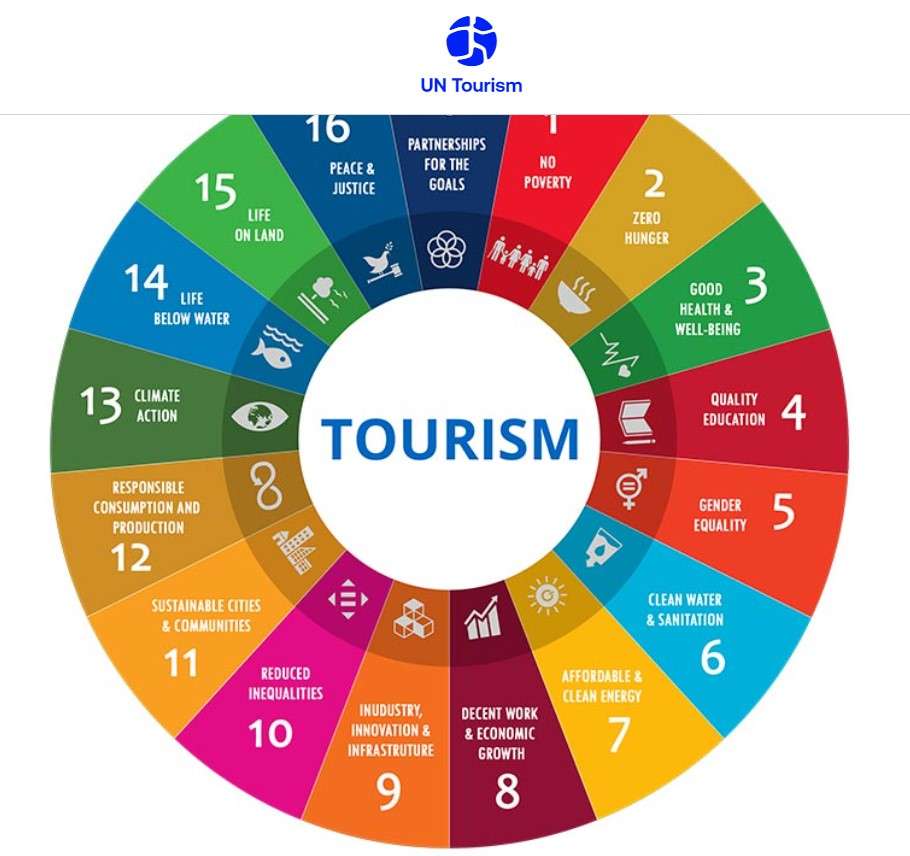The article shows quick glimpse of Important Definitions on Tourism and related Terminologies:
Definitions on Tourism and related Terminologies:
- Tourism: The process, activities and outcomes arising from the relationships and the
interactions among the tourists, tourism suppliers, host government, host communities and surrounding environment that are involved in attracting visitors.
For example– A family from China would be traveling to Eastern European countries for 10 days has booked their travel through a travel agency in an inclusive travel package including return flights during their summer holiday.
- Tourist: Visitors who can stay in the country visiting for at least 24 hours in the visiting country and whose purpose of the journey could be leisure or business. The word ‘tourist’ was first used in 1772 and tourism is used in 1811.
Activity/activities: In tourism statistics, the term activities represent the actions and behaviors of people in preparation for and during a trip in their capacity as consumers.
Adventure tourism: Adventure tourism is a type of tourism which usually takes place in destinations with specific geographic features and landscapes and tends to be associated with physical activity, cultural exchange, interaction and engagement with nature.
Business tourism: Business tourism is a type of tourism activity in which visitors travel for a specific professional and/or business purpose to a place outside their workplace and residence with the aim of attending a meeting, an activity or an event.
Cultural tourism: Cultural tourism is a type of tourism activity in which the visitor’s essential motivation is to learn, discover, experience and consume the tangible and intangible cultural attractions/products in a tourism destination.
Also Read
- What is Tourism Measurement and Tourism Indicators
- What are the Various Tourism Approaches
- Early and Medieval Age of travel, Travel during Renaissance and Mass Tourism
- Important Definitions on Tourism and related Terminologies
Destination management / marketing organization (DMO): A destination management/marketing organization (DMO) is the leading organizational entity which may encompass the various authorities, stakeholders and professionals and facilitates tourism sector partnerships towards a collective destination vision. The governance structures of DMOs vary from a single public authority to a public/ private partnership model with the key role of initiating, coordinating and managing certain activities such as implementation of tourism policies, strategic planning, product development, promotion and marketing and convention bureau activities.
Domestic tourism: Domestic tourism comprises the activities of a resident visitor within the country of reference, either as part of a domestic tourism trip or part of an outbound tourism trip.
Ecotourism: Ecotourism is a type of nature-based tourism activity in which the visitor’s essential motivation is to observe, learn, discover, experience and appreciate biological and cultural diversity with a responsible attitude to protect the integrity of the ecosystem and enhance the well-being of the local community.
Economic analysis: Tourism generates directly and indirectly an increase in economic activity in the places visited (and beyond), mainly due to demand for goods and services that need to be produced and provided.
Forms of tourism: There are three basic forms of tourism: domestic tourism, inbound tourism, and outbound tourism. These can be combined in various ways to derive the following additional forms of tourism: internal tourism, national tourism and international tourism.
Gross value added of tourism industries: Gross value added of tourism industries (GVATI) is the total gross value added of all establishments belonging to tourism industries, regardless of whether all their output is provided to visitors and the degree of specialization of their production process
Inbound tourism: Inbound tourism comprises the activities of a non-resident visitor within the country of reference on an inbound tourism trip.
Internal tourism: Internal tourism comprises domestic tourism and inbound tourism, that is to say, the activities of resident and non-resident visitors within the country of reference as part of domestic or international tourism trips.
National tourism: National tourism comprises domestic tourism and outbound tourism, that is to say, the activities of resident visitors within and outside the country of reference, either as part of domestic or outbound tourism trips.
Case Studies
- Medical Tourism Scenario in India in 2025
- Indian Festivals in 2025 Celebrating Colorful Traditions
- Finding New Opportunities through Case Study of a Indian Startup- Chumbak
- Famous Global Winter Festivals in the World 2024 One Should Witness
- 10 Binge-Worthy Travel Indian Movies You should watch in 2024
Outbound tourism: Outbound tourism comprises the activities of a resident visitor outside the country of reference, either as part of an outbound tourism trip or as part of a domestic tourism trip.
Quality of a tourism destination: Quality of a tourism destination is the result of a process which implies the satisfaction of all tourism product and service needs, requirements and expectations of the consumer at an acceptable price, in conformity with mutually accepted contractual conditions and the implicit underlying factors such as safety and security, hygiene, accessibility, communication, infrastructure and public amenities and services. It also involves aspects of ethics, transparency and respect towards the human, natural and cultural environment.
Rural tourism: Rural tourism is a type of tourism activity in which the visitor’s experience is related to a wide range of products generally linked to nature-based activities, agriculture, rural lifestyle / culture, angling and sightseeing.
Same-day visitor (or excursionist): A visitor (domestic, inbound or outbound) is classified as a tourist (or overnight visitor), if his/her trip includes an overnight stay, or as a same-day visitor (or excursionist) otherwise.
Total tourism internal demand: Total tourism internal demand, is the sum of internal tourism consumption, tourism gross fixed capital formation and tourism collective consumption (TSA:RMF 2008, 4.114). It does not include outbound tourism consumption.
Tourism destination: A tourism destination is a physical space with or without administrative and/or analytical boundaries in which a visitor can spend an overnight. It is the cluster (co-location) of products and services, and of activities and experiences along the tourism value chain and a basic unit of analysis of tourism.
Tourism direct gross domestic product: Tourism direct gross domestic product (TDGDP) is the sum of the part of gross value added (at basic prices) generated by all industries in response to internal tourism consumption plus the amount of net taxes on products and imports included within the value of this expenditure at purchasers’ prices.
Tourism Satellite Account: The Tourism Satellite Account is the second international standard on tourism statistics (Tourism Satellite Account: Recommended Methodological Framework 2008 –TSA:RMF 2008) that has been developed in order to present economic data relative to tourism within a framework of internal and external consistency with the rest of the statistical system through its link to the System of National Accounts. It is the basic reconciliation framework of tourism statistics.
Tourism sector: The tourism sector, as contemplated in the TSA, is the cluster of production units in different industries that provide consumption goods and services demanded by visitors. Such industries are called tourism industries because visitor acquisition represents such a significant share of their supply that, in the absence of visitors, their production of these would cease to exist in meaningful quantity.
Tourist (or overnight visitor): A visitor (domestic, inbound or outbound) is classified as a tourist (or overnight visitor), if his/her trip includes an overnight stay, or as a same-day visitor (or excursionist) otherwise
Travel / traveller: Travel refers to the activity of travellers. A traveller is someone who moves between different geographic locations, for any purpose and any duration (IRTS 2008, 2.4). The visitor is a particular type of traveller and consequently tourism is a subset of travel.
Trip: A trip refers to the travel by a person from the time of departure from his/her usual residence until he/she returns: it thus refers to a round trip. Trips taken by visitors are tourism trips.
Vacation home: A vacation home (sometimes also designated as a holiday home) is a secondary dwelling that is visited by the members of the household mostly for purposes of recreation, vacation or any other form of leisure.
Visitor: A visitor is a traveller taking a trip to a main destination outside his/her usual environment, for less than a year, for any main purpose (business, leisure or other personal purpose) other than to be employed by a resident entity in the country or place visited (IRTS 2008, 2.9).
Wellness tourism: Wellness tourism is a type of tourism activity which aims to improve and balance all of the main domains of human life including physical, mental, emotional, occupational, intellectual and spiritual. The primary motivation for the wellness tourist is to engage in preventive, proactive, lifestyle-enhancing activities such as fitness, healthy eating, relaxation, pampering and healing treatments.


